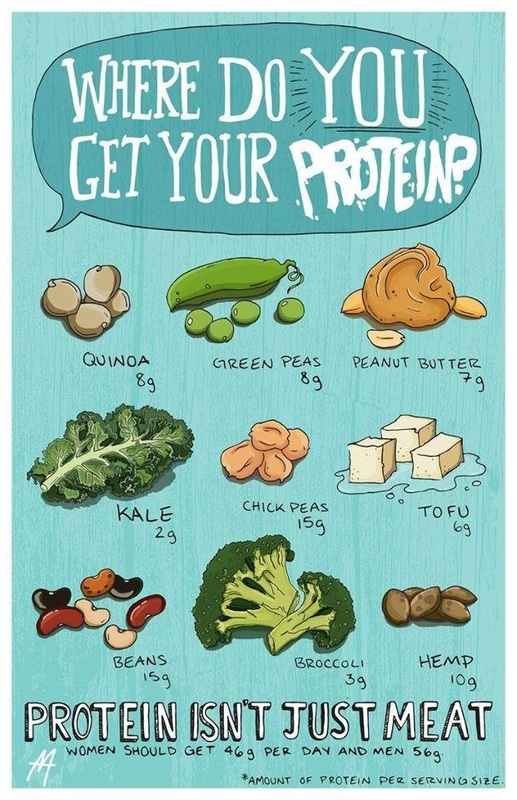The simple answer: I have no idea.
The longer answer? It's a process, one that is evolving over time. Each day, I learn something new.
First, what is it? Technically, veganism is a type of vegetarian diet that excludes meat, eggs, dairy products and all other animal-derived ingredients. So no butter, eggs, fish, meat, and cheese. It does include grains, beans, legumes, fruits and vegetables and all of ways you can combine those ingredients (giving you an infinite number of options).
For me, the idea of living a meat-free, dairy-free, animal-product-free life came about last October. I honestly didn't think athletes (and I'm very cautious to refer to myself as an "athlete" - those are people that are super fit, right? I'm just a girl who likes to run) could exist on a meat-free diet. We need protein, right? Lots of it! But after reading Born to Run and Eat & Run, both books heavily promote a very simple, very clean plant-based diet. I have yet to purchase a sack of pinole, but let me tell you, Christopher McDougall convinced me to start eating chia seeds. And they are delicious.
It was really Scott Jurek and his experiences (and recipes!) that made me feel like this was possible. And not just possible, but actually necessary if I wanted to run long distances. I read Kris Carr's Crazy Sexy Diet back in January 2013 but it wasn't a good fit. The story was compelling - she cured her stage 4 liver cancer through a complete overhaul of her diet, namely removing all animal products and juicing up a storm of organic veggies. But at one point in the book, she addresses exercise and states, yeah sure, workout two or three times a week, you know, if you can.
"...if you can..."???
I shuddered when I read that.
My five-day-a-week boot camp schedule combined with running was not optional. Hill Day was rigorous enough that I would not survive the hour on kale and beet juice alone. I put the book up on the shelf and never looked at it again.
Then Scott Jurek came into my life. If he can train, run, and WIN 135-mile ultras, well, I'm all ears. He has to eat protein in order to build and recover his muscles and still maintain a huge store of glycogen to help him get through those runs. His experience was much more applicable then Kris' advice.
(Perhaps you are wondering just how much protein we really need? Here's a helpful tip: per Runner's World, the average human needs about .5 grams of protein per their body weight per day. So if you are 140 pounds, you will need 70 grams of protein each day. For "athletes" - again, not sure if that's me, but I am running 45 miles this week - the number goes up to .7 grams of protein per day, so about 98 grams of protein.)
There are all kinds of plant-based proteins out there, too. Check it out:
I'll occasionally add in a vegan protein shake (25g) after a particularly tough Hill Day or long run, and I'm good. I'm not concerned at all about not getting enough, since my diet is chock full of all of the things listed above (minus peanut butter. I use Justin's Almond Butter and am fairly confident I've developed a dependence on that nut butter...)
I noticed around Christmas that I just felt better. Maybe I was still high from the marathon, who knows. I felt freakishly strong and seemed to recover faster and faster from tough workouts. I noticed my upper arms leaned out. My face became more narrow. The scale hadn't moved since the pre-marathon days but my jeans (the new ones!) were loose. And best of all, my tummy wasn't a mess. I literally felt lighter.
I really made a push to maintain really meat-free through the winter. It was weird not ordering steak or shrimp cocktail at Flemings. At Carnevino one night, I requested a vegan entrée and they literally brought out a giant plate of grilled vegetables. I'll admit, it wasn't the best or most creative dish, but it still fit within my dietary parameters. Formerly a huge fan of their bread and that butter-y dipping sauce (it's lard, let's face it. That's why it tastes so good), I didn't have a bite. I actually felt better mentally and physically for passing on that one.
Despite that disappointing plate of vegetables, I felt more empowered than deprived. The healthier I ate, the more I craved healthy food. "Cheat" meals were no longer appetizing. The thought of McDonald's hamburger actually makes me gag, and ditto for those fries. Any food that does not decompose within weeks of sitting at room temperature should NOT be consumed by human beings. It should be burned at the stake and its ashes disposed of properly. I get a little giddy at Whole Foods these days, poking through the grain bar or studying the dried beans. Vegan chicken salad made with seitan at the deli? Yes, please!
Obviously, I'm still learning. Just a few weeks ago, a waiter brought my salad over (we were at a mostly vegan café) and apologized profusely. "I believe your salad dressing has honey in it," he explained with remorse. "That's fine..." I replied slowly, not understanding. Then it dawned on me - oh, honey is an animal product! And then I got annoyed. Really? Really?? As my friend and fellow veggie-lover Gabi succinctly put it, it's not like we are whipping the bees. Don't they just do that..naturally? Are any bees being harmed in the making of this product?
And that's when I realized how complicate this whole thing was - and how, like anything, it can be taken to many different levels. Many Asian restaurants use fish sauce in their dishes. Gelatin is an animal product and frequently used in frozen yogurt. The list of "sneaky" animal products, as I like to think of them, can go on and on. I don't want to become obsessive and I don't want to become neurotic, where every food is off-limits or potentially harmful. I just want to feel good and run long distances (without dying).
So am I vegan? I don't know. Brian still offers me bites of his steak when we are out at a restaurant. I usually take him up on it half of the time. I've been dairy-free for almost five years now, which happened rather expectantly. It's really been a blessing especially when you picture your colon digesting cheese (ew!). Eggs continue to be my huckleberry, whether they are for breakfast or tucked into a delicious baked good like a scone or lemon cookie...my legendary sweet tooth has been tough to tame.
Did you know Skittles are technically vegan? You can find a whole bunch of "technically" vegan products but it doesn't mean you are healthy. "Avoiding animal products" is not the same as "eating a plant-based diet." Back in college, I was a vegetarian. At the time, I think I did it just to piss off my parents (sorry, Mom). It certainly didn't mean I was eating healthy - far from it. I was a Cheetoh-eating, Coke-drinking "vegetarian." But I felt strongly about not eating meat and even had my own column in the school paper ("Going Green" by Kim Scott, complete with a tiny headshot.) Ironically enough, my vegetarianism ended on my first date with Brian in 2002 when he offered me - what else? - a bite of his steak.
(Aw, he was even sharing his food with me back then.)
Is vegan for everyone? I don't know that either. The thing is, I just feel better. I think I was always meant to eat like this. On a whim, I read up on blood types and diet. I'm A+ (or A plus, as I like to think), and the description made me laugh out loud. "My people" - us Type A'ers - pushed through the north of Africa, having exhausted the the great game herds, into Europe and Asia...eventually we were able to forego the usual hand-to-mouth eating habit of hunter/gatherers and establish stable communities and harvest grains. Over the years, we evolved to the point that the digestive enzymes that break down and metabolize animal protein and fat were phased out...making the vegetarian lifestyle the ideal one.
So it's all starting to make sense...I'm a slow-moving, grain-loving grazer. No wonder I've never been 100% comfortable eating cow...perhaps I am one.
Science or pseudoscience? I have no idea. But it's interesting to note, particularly when I read Brian's Type O description. It said in no uncertain terms should he adapt the vegan lifestyle. Type Os are "aggressive predators" and thrive on a diet rich in lean meats and veggies. He breathed a visible sigh of relief when I read that, since nothing makes him happier than a good steak.
(Check out your blood type here. If it's not accurate, at least it's fun!)
So there you have it. Vegan, non-vegan, you decide. Am I going to give up honey? I don't know. Do I want to eat animal flesh? Not right now. Is being vegan a challenge at times, particularly when dining at a friend's house? Absolutely, and the last thing I want to do is put someone out of their way. So I like to think of myself as "vegan with benefits," doing what I can with what I have. After all, flexibility is a good thing.
(And in honor of veganism, I'll post a few of my favorite recipes this week! Stay tuned.)


 RSS Feed
RSS Feed